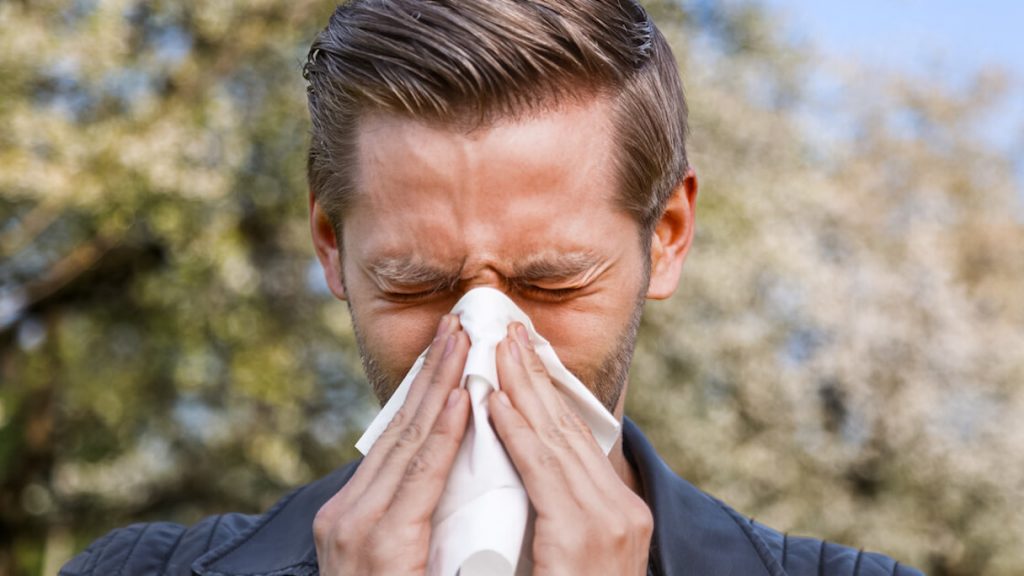
By Katie Moritz | Rewire
Are seasonal allergies hitting you worse than ever this year? Or are you suddenly getting itchy when you eat peanut butter or shellfish?
It might seem like it’s coming out of nowhere, but it’s common to start having allergic reactions as an adult you didn’t when you were young.
As you age, you’ll grow in and out of allergies, said Gary LeRoy, a family doctor in Dayton, Ohio, and a member of the American Academy of Family Physicians Board of Directors. He lives and works in a region of Ohio that’s been nicknamed “Sinus Valley”—the area’s vegetation and topography cause serious allergy problems for the people who live there.
Because he’s a family doctor, LeRoy has ongoing relationships with his patients, sometimes from childhood to adulthood.
“They ask me…, ‘Why did I just develop these allergies?’” he said.
The answer is: you didn’t. As you get older, your body can stop tolerating allergens—like certain pollens, nuts or medication, for example—it’s been fighting for years. You’ve likely been having small reactions you haven’t been noticing all along, LeRoy said. And eventually, “your body turned around and said, ‘We’re not taking this anymore.’”
This can happen with all kinds of allergens—including environmental, seasonal and food. These changes to your immune response are likely to take place in your 20s, 30s and 40s rather than later, if they’re going to happen at all, according to Everyday Health.
Allergens around you?
Any changes you’ve been experiencing could be explained by your surroundings, too. Your body can be alarmingly sensitive to environmental shifts. Have you ever arrived in a new city by planeand immediately started sneezing when you hit the runway? (“I wish I had a buck for every time I’ve heard that,” LeRoy said.) Allergens that are imperceptible to the naked eye can have a swift impact on your health.
If you’ve been experiencing mystery allergy symptoms lately, think about what has changed in your life. Did you move into an older apartment building or a different part of town? Get a new-to-you couch (or have an old, dusty one)? Move desks to a different part of your office building? Change your diet? And, of course, did plants just start blooming outside? Any of these seemingly small things could be an explanation for your allergic reaction, characterized by sneezing, itchy eyes and skin and breathing difficulties, among other symptoms.
LeRoy’s daughter and her husband just moved from an urban condo to a house in a more rural area. Living in a place surrounded by more grass and trees than before was enough to exacerbate her allergies, LeRoy said.
“It doesn’t have to be something major,” he said. He’ll walk through life changes, even minor ones, with patients who are suffering from allergy symptoms. “It’s like trying to be a detective sometimes.”
This process can be tricky. Though the first thing a doctor will recommend to treat your allergies is to address or take yourself out of whatever environment is causing the reaction, “about 50 percent of the time with adult-onset allergies, we don’t know what the trigger is.”
How to deal
If you can’t eliminate what’s triggering your allergies—either because you can’t figure out what it is, because you’re allergic to your entire house or because you can’t up and move to a desolate wasteland with no plant life—you’ll need to figure out how to treat it.
Start with over-the-counter oral medications, nasal sprays and eyedrops. You might have to experiment with the right combination for you.
If your symptoms don’t get better or worsen after two or three weeks, seek professional medical help, LeRoy said. Your doctor will walk through your symptoms and environment with you to figure out what’s going on and the best treatment plan for you. Be prepared to share any life changes you’ve been through, however small. Your doctor can also refer you to an allergist, a doctor that specializes in allergies, if need be.
However, if you ever experience a severe, anaphylactic reaction, call 9-1-1 and get emergency medical help immediately. An anaphylactic reaction can include vomiting or diarrhea, a dangerous drop in blood pressure, redness of the skin or hives, difficulty breathing, swelling of the throat or tongue and loss of consciousness and can be life-threatening, according to the American College of Allergy, Asthma and Immunology.
This can occur when “your immune system keeps ramping up your response (to an allergen) and now it’s not just subtle, it’s a very noticeable… violent reaction,” LeRoy said. If you come in contact with things you know you’re allergic to, keep an eye on how your body is responding. You could have a surprise reaction that’s more severe than normal.
![]() This article originally appeared on Rewire.
This article originally appeared on Rewire.
© Twin Cities Public Television - 2018. All rights reserved.
Read Next



